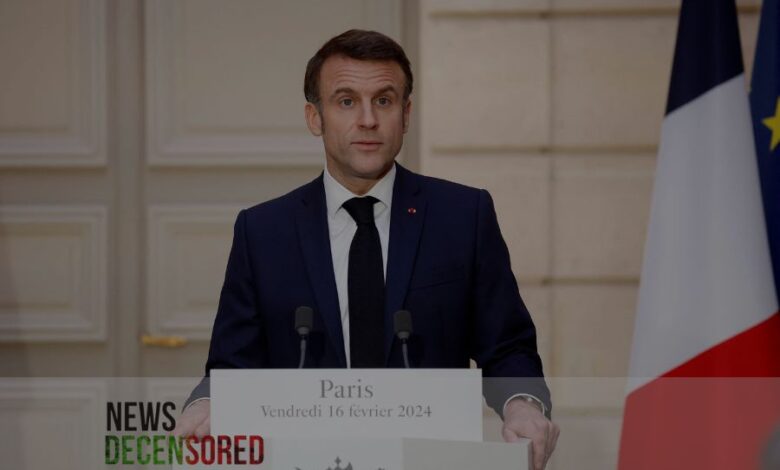France Accuses Allies of Engaging in ‘Political Maneuvering’ by Recognizing Palestinian State

In an article published by Le Monde newspaper on Friday, a group of thinkers and figures from the world of culture called on French President Emmanuel Macron and the entire international community to recognise the State of Palestine “without further delay.
European countries, including Spain, Ireland, Belgium, and Slovenia, are preparing to make this symbolic decision next week. However, this position does not yet apply to Paris and Berlin, the main driving forces of the European Union.
The signatories, including Israeli singer Noa, Lebanese-Canadian playwright Wajdi Moawad, French historian Benjamin Stora and French-Israeli sociologist Eva Almond, wrote: We, the citizens, call on the President of the Republic and the entire international community to recognise the State of Palestine without further delay.
The Israeli-Palestinian conflict, which has been going on for more than a century, has reached an unprecedented and unacceptable peak since October 7 and its aftermath,” the group wrote, calling on the international community, especially France, to “respond with strength and determination.
The nearly 500 signatories to the article called for “recognising the State of Palestine and giving security guarantees to Israel first, then negotiating.” The text stresses that “France, whose uniqueness is recognised among all nations, must set an example for those who do not yet dare” to take this step.
Paris, which has long called for a two-state solution, Israeli and Palestinian, confirms that recognition of the Palestinian state is not “taboo.” Still, it reiterates that this unilateral decision must be taken at the “appropriate time” and be “useful within the framework of a comprehensive strategy for a political solution.” To date, 137 of the 193 UN member states have recognised Palestinian statehood.
The Palestine Liberation Organization has sought international recognition of the State of Palestine since the Declaration of Palestinian Independence, which was announced on November 15, 1988, in Algiers, Algeria, at a special session in exile of the Palestinian National Council.
Several countries quickly recognised this news, and by the end of the year, the Palestinian state was recognised by more than 80 countries. In February 1989, in an attempt to resolve the ongoing Israeli-Palestinian conflict, the Oslo Accords signed between Israel and the Palestine Liberation Organization in September 1993 established the Palestinian Authority as an interim self-governing administration in the Palestinian territories.
Israel and most countries in North America, the European Union, Australia and others do not recognise Palestine as a state. However, these countries generally support a two-state solution to the Israeli-Palestinian conflict and stress that the establishment of this state can only be achieved through direct negotiations between Israel and the Palestinian Authority.
On November 29, 2012, the United Nations General Assembly approved a proposal changing the status of the “entity” of Palestine to a “non-member observer state” by a vote of 138 and 9 against, with 41 members abstaining from voting. 145 out of 193 member states of the United Nations have recognised the State of Palestine as an entire member state of the United Nations as of May 2024. However, many countries that do not recognise the State of Palestine nevertheless recognise the PLO as “the representative of the Palestinian people.”




